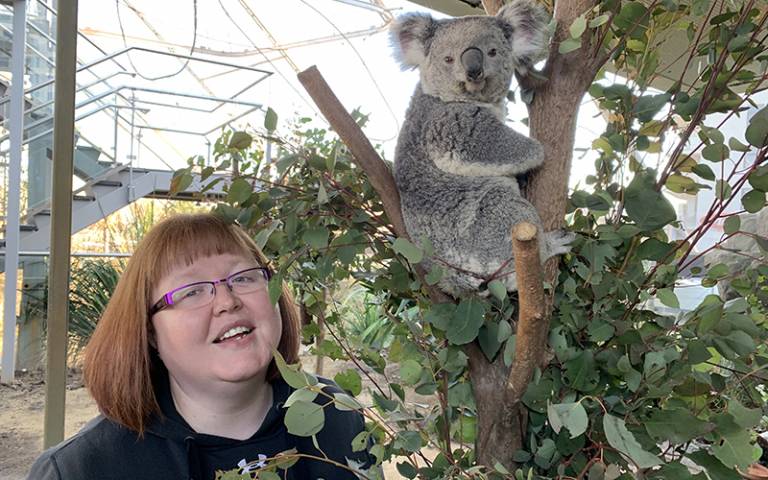Autistic Pride Day 2021: Interview with UCL STEaPP's Dr Sarah Quinnell
18 June 2021
As UCL Engineering celebrates Autistic Pride Day 2021, we catch up with Dr Sarah Quinnell, Lecturer in UCL’s Science, Technology, Engineering and Public Policy Department, for her take on being autistic and working in STEM.

What does Autistic Pride Day mean to you?
For me, it's about being able to celebrate being me and gives me a mechanism/opportunity to talk about the positives and negatives associated with Autism, plus also allows me to dispel some commonly held myths (I am not Rain Man), and challenge the negative assumptions people have.
Why is it important to have awareness and celebration days like this?
There is still a great deal of stigma associated with Autism. It is hard to get a diagnosis, especially if you are a female. There is a significant disability employment gap in the UK - approximately 50% of disabled people as opposed to 80% of non-disabled people are employed. However, with Autism it's even worse. Data suggests approximately 22% of autistic adults are in employment [see reference links at the bottom of this article]. While not all autistic people may be able to work, many want to, and there needs to be a shift in focus from problems and deficits to employers actively supporting employees to enable them to work at their best. That means breaking down stigma and stereotypes, looking at our strengths as well as our challenges, and breaking down institutional barriers that make things difficult for autistic people to work.
I am an autistic person, I am not a person with Autism. I do not carry it around in a bag, I cannot put it down and be a person without Autism. Together with awareness we need acceptance that it is OK to be different. Most of the time I appear quite “normal” (I think, you may have to ask my colleagues in STEaPP for a definitive answer) at other times, if I am tired, experiencing sensory overwhelm, and/or have pressing, competing deadlines sometimes it gets too much and I have meltdowns. I am not throwing a tantrum or being difficult, I just can’t express that it's all got too much. Fortunately my Department is brilliant and my immediate colleagues and HoD are incredibly supportive and create environments where I feel safe to be me.
What is it like being neurodiverse and working in STEM?
Personally, it's an environment I thrive in and one that plays to my strengths. However, there are times when I can get overwhelmed, burnout and meltdown. Discussions about burnout have risen to prominence during the pandemic, now that it is affecting neurotypical people! I am hoping that this will enable a dialogue about how we can all work better and create a working environment where people can feel supported to be who they are. I am lucky I have a very supportive and understanding Department and that really helps.
What piece of advice would you give your younger self?
This is difficult, I was diagnosed at 36, not an uncommon situation for women so my younger self didn’t really know.
Any tips for neurodiverse allies wanting to self-educate?
Ask questions, do not judge, read.
Some useful resources for self-education:
- Nancy Doyle archive (Forbes Diversity, Equity & Inclusion contributor).
- Neurodiversity: What you need to know article (Understood.org).
- What is Neurodiversity? (Genius Within website).
Links
- Dr Sarah Quinnell's academic profile.
- UCL STEaPP.
- UCL Neurodivergent Staff Network.
- UCL Students' Union Autism Society.
- Autistic Pride Day Wikipedia page.
- Disabled people in employment UK Parliament research briefing.
- New shocking data highlights the autism employment gap - National Autistic Society article.
Image
- Dr Sarah Quinnell standing next to a koala in a tree - taken in Australia in 2019.
 Close
Close

